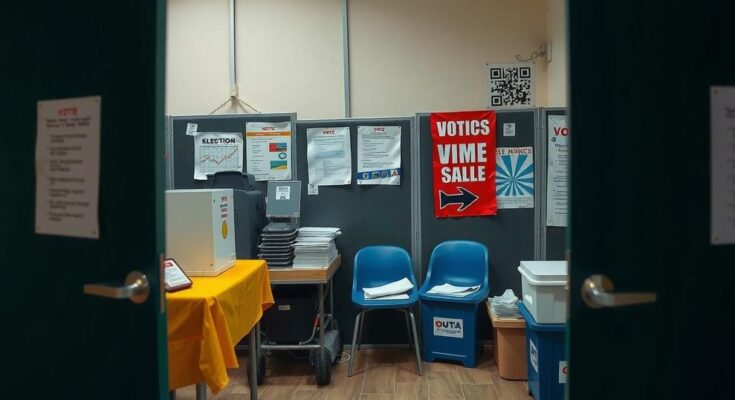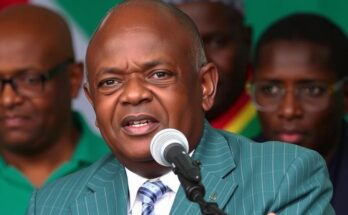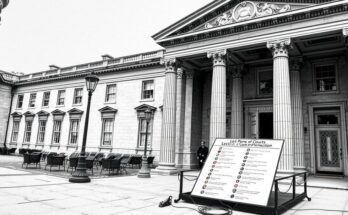Namibia has extended election voting into the weekend following ballot paper shortages, prompting allegations of illegality from the opposition. The electoral commission cited logistical issues affecting turnout, leading to public frustration. Approximately 1.4 million citizens are registered to vote, with dissatisfaction amongst the youth complicating the electoral process. Vice President Netumbo Nandi-Ndaitwah seeks to become the country’s first female president amid economic challenges.
Namibia’s electoral agency has announced an extension of voting for the presidential elections to include the weekend following technical difficulties, namely, shortages of ballot papers. Polling stations that initially were set to close on Wednesday will extend operations until Saturday evening. The opposition party, Independent Patriots for Change, has criticized this decision, arguing that it constitutes an unlawful act and suggests potential electoral fraud. Voter turnout has been hampered due to logistical challenges, prompting frustration among citizens who have yet to cast their ballots.
Amidst long lines and delays, voters express their discontent, likening the experience to being treated as if they are irrational. With approximately 1.4 million registered voters in Namibia, the electoral commission continues to assure citizens that ballots will arrive soon. Namibia has historically been viewed as one of the most stable democracies in Africa but faces challenges due to economic disparities among its population.
As the elections unfold, there are fears that the electoral process may be undermined by allegations similar to those occurring recently in Mozambique, where unrest followed the announcement of election results. The current vice president, Netumbo Nandi-Ndaitwah, aims to make history as the country’s first female leader, but her ruling party is confronted with significant public dissatisfaction amidst rising unemployment and a population yearning for change.
Overall, the election process brings attention to Namibia’s democratic credibility and the challenges posed by logistical issues, which may influence the outcome of the president and parliamentary elections during this critical transitional period.
Namibia, which gained independence in 1990 following a prolonged liberation struggle, has been characterized by its democratic governance under the South West Africa People’s Organization (SWAPO), which has held power since independence. This election cycle marks a critical juncture, as an estimated 1.4 million voters take part in selecting their next president and parliamentarians while grappling with economic challenges, particularly among the youth in a nation rich in mineral resources. The extension of voting due to technical issues raises concerns about electoral integrity, reflecting broader issues occurring in the region, such as unrest in Mozambique following disputed election outcomes.
In summary, Namibia’s electoral landscape is currently marked by challenges including an extension of voting due to ballot paper shortages and accusations of illegitimacy by the opposition. Citizens express their frustrations while waiting to cast their votes, highlighting the logistical difficulties encountered during this electoral process. As the elections continue, the implications of these developments may significantly affect the political climate in Namibia, an established democracy facing modern challenges. The outcome will also be closely monitored to gauge its impact on the broader context of governance in southern Africa.
Original Source: apnews.com




